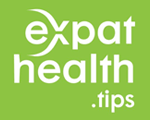Pharmacies and existing prescriptions
If you have an ongoing medical condition that requires prescription medication in your country of origin, remember to bring medication in original containers, with clear indications that it is a legitimate pharmaceutical. Also, if you can get your doctor to give you a signed description of your condition and current treatment regime, the non-brand name of the medicine in question, as well as any known generics or alternatives, you will have no problems finding appropriate medications in Chile. There are several medication monitoring solutions that can help you find the proper personal treatment before you travel.
Pharmacies themselves are the only place where over the counter medicine and pain relief can be purchased, so don’t expect to find aspirin in the supermarket. In general, pharmacies are well stocked, with staff who are trained and able to help you with your needs. They may also be able to supply you with medication you would not have access to in your home country over the counter, but a doctor’s prescription is the best guarantee.
Vaccinations
Because of Chile’s varied local climates, it is advised that you consult with a doctor two months before travelling to get up to date advice on necessary vaccinations. The British Foreign Office country guide (and other countries’ foreign affairs websites) has updates on recent disease outbreaks that travellers should be aware of, as well as more general advice on prevalent health concerns.
Recommended vaccinations include:
- Hepatitis A
- Typhoid
- Tetanus-diphtheria (if you have not received one in the last 10 years)
- MMR (measles, mumps, rubella)
People working closely with animals or in forest areas are also advised to get a rabies vaccination. These vaccinations are only recommendations and you should always seek the advice of healthcare professionals.
Air pollution
Unfortunately airborne pollution and associated phenomena like smog are very much a reality in major cities, especially Santiago. People with respiratory conditions and children are advised by government monitoring services when the health risks are particularly severe and may be warned against spending prolonged periods outside. Luckily, the very worst conditions for air pollution occur only during winter, and residents in less urbanised areas are much less likely to experience any unpleasant effects.
Drinking water, food hygiene and travellers sickness
In general water from taps and plumbing in houses is completely fine for residents to drink, with 95% of the population having access to a safe water supply. Water sources for people living in more remote areas of Chile are less reliable, and all new arrivals may want to purchase bottled water upon arrival to allow their stomachs time to adjust.
Food safety is a common concern for potential expats, and using some common sense on arrival in Chile is recommended. For example, people new to the country will in most cases suffer from harmless ‘traveller’s diarrhea’ as their digestive system adjusts to unfamiliar food and water.
You can feel secure when purchasing food in major cities, restaurants and cafes; but if you are tempted by street food, try and ensure it is prepared in sight for peace of mind. Finally, due to some problematic distribution chains, be cautious when purchasing dairy and similarly sensitive foodstuffs (always check if dairy products have been pasteurised for example).
For more information on staying healthy abroad and in Chile, visit Expat Health Tips: https://expathealth.tips/




